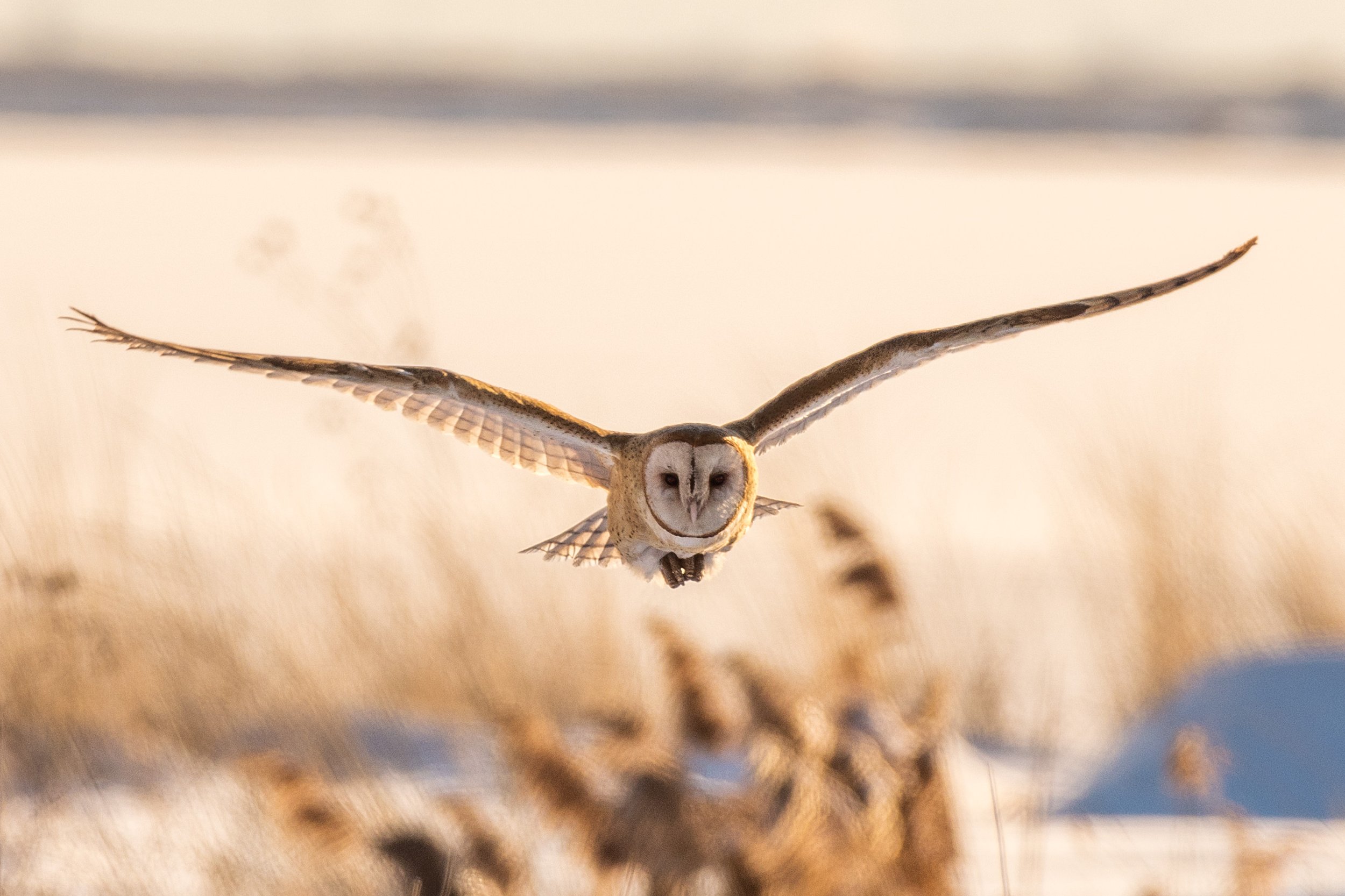
Frequently Asked Questions
We get a lot of questions, and we have answers: what to do if you find a baby bird, how can you visit the Ojai Raptor Center, how do we help birds, what is a raptor, how you can help birds and minimize harm, and many other questions are answered here.
Questions About Birds
-
-
We know the desire to keep a baby bird or animal is strong, and that the thought of handing it over to a wildlife rehabilitation center might be hard. Despite what your heart might be telling you, we can't stress enough — it is always in the best interest of the baby bird or animal to stay in the wild if it is safe, or to go to an experienced rehabilitator if it needs help.
Wild baby birds/animals have specialized medical, dietary, and social needs that should be determined by trained and licensed rehabilitators for the health and safety of the animal. Baby birds are also highly susceptible to imprinting, which can cause irreversible damage to their ability to ever survive in the wild. (See next question for further detail.)
All raptors and wild native birds are also protected under the Federal Migratory Bird Act and keeping them in captivity for any length of time without a permit is illegal.
-
During the first few weeks of life wild animals come to understand their identity by associating and bonding with their parents through a process called imprinting. If an animal doesn’t socialized with their own species during this critical developmental period and are raised by, and only see a human being, they can permanently imprint onto humans instead. We call this malprinting.
When malprinting occurs, the bird will never be able to feed itself, mate or reproduce in the wild and therefore would never survive in the wild if released. By keeping a wild bird and unintentionally imprinting it, you sentence it to a life in captivity or worse.
Imprinting is one the most common "injuries" but it is also one of the most preventable. We strive to give every bird the best chance at survival in the wild, which means having to put our natural instinct to nurture it aside and do the right thing by getting it to professional care.
Three of our education ambassadors are imprinted birds, their chance to remain wild was taken from them by humans who were probably trying to help them but were unaware of the possibility of imprinting them.
-
If you have found a wild bird or animal that you believe to be in distress please call us at (805)649-6884. Leave a message and we will call back soon.
-
A raptor is a bird of prey that uses its sharp talons to catch and kill live prey. The word raptor comes from the latin word rapere which means "to snatch" or "grab."
Questions About Ojai Raptor Center
-
The Ojai Raptor Center is only open to the public by appointment for private tours. The reason we limit visitation is because constant visitors can cause distress for our raptors, and disturb their daily routines. You can also keep up to date with us by liking us on Facebook, and following us on Instagram. We also encourage you to sign up for our newsletter at the bottom of this page.
-
Learn more on our Wildlife Education page
-
-
Due to the Covid-19 pandemic we are not currently holding any events.
To stay up to date with us and be the first to know when we announce events, sign up for our newsletter and follow us on social media. Info is at the bottom of every web page.
-
We receive birds and wildlife from the public, U.S. Fish and Wildlife, veterinarians, and other shelters or wildlife rehabilitation centers. 85% of the cases we receive are in need of help because of some human cause. Some of these causes include rodent poisoning, displacement from nests as babies because of tree trimming, car strikes, or people trying to care for them improperly.
-
We can take in any wildlife that may be in distress. If we receive a species that is not within our speciality, we will stabilize them at our center, and then transfer them to the appropriate agency. We work continuously with other wildlife rehabilitation centers throughout California and beyond.
-
All of our education ambassadors came to us as patients. Our goal is to rehabilitate all raptors so that they can be released back into the wild. In some cases this is not possible, when there is some kind of permanent injury that would make it impossible for them to survive if released. These non-releasable raptors become our center's education ambassadors. Learn more about each of their stories here. (hyperlink)
For data purposes all raptors are banded under USGS permits. This provides data in tracking species and patterns of migratory birds.
-
Yes, we are state and federally licensed.
-
We are a certified 501(c)(3) nonprofit and depend solely on donations and volunteer efforts. We receive no federal or state funding.
-
Make a general Donation online, or you can mail in a donation: P.O. Box 182, Oak View California 93022.
Here are many other ways you can donate to support Ojai Raptor Center.
Thank you!
Questions About Minimizing Harm to Birds and Other Wildlife
-
If you are having a rodent problem do not use poison, rat bait, or boxes. All these methods can cause harm to birds or other wildlife. When birds or other wildlife eat a rodent that has been poisoned by a human, the animal who eats the rodent is now also subject to poison. Read more: About Rodenticides
-
The best rodent control is encouraging natural predation and using exclusion and prevention methods to secure your home or business.
Natural predation involves installing raptor perches and owl boxes to attract natural predators to keep rodent populations under control. For example, a family of Barn Owls (from a single nesting box) can consume up to 5,000 rodents in a single 4 month breeding cycle.
Exclusion and prevention include removing any trash or vegetation that may be attracting rodents, as well as sealing off any entry points for rodents.
Read more: Humane Rodent Control
-
Most birds nest during the spring and summer. Unfortunately this is also the time of year that people tend to trim trees, and clear brush. Doing so can unintentionally demolish nests and destroy valuable nesting sites.
There are laws that protect birds, their nests, eggs, and young from being removed. Violating any of these laws may result in fines and imprisonment.
Read more: Raptors & the Law
-
Nesting varies widely depending on the species of bird but to be safe the best months to trim your trees are in the fall and winter months to avoid disrupting or harming nesting birds.
Check out our educational programs to learn more, or contact us if you have any other questions.
